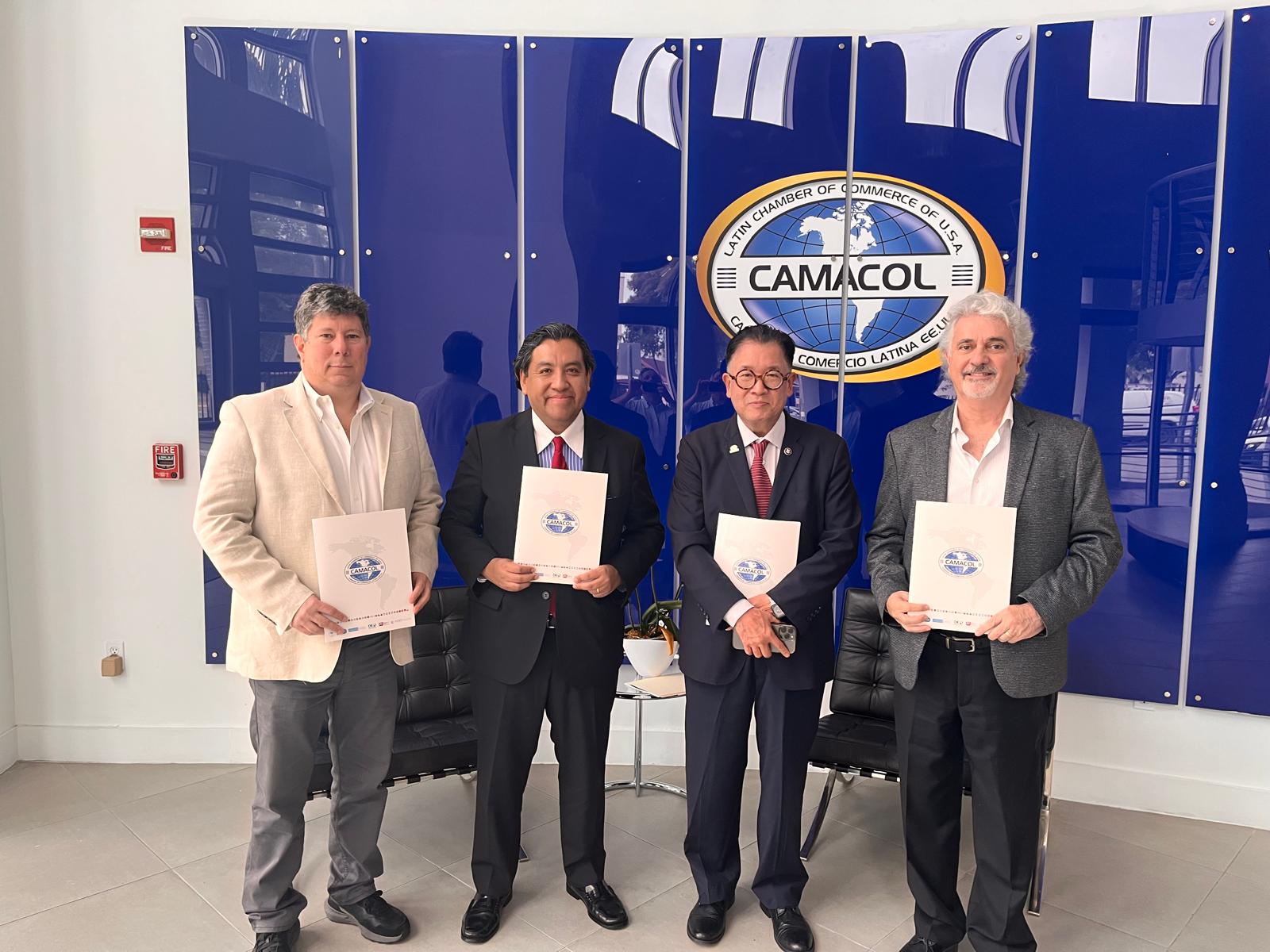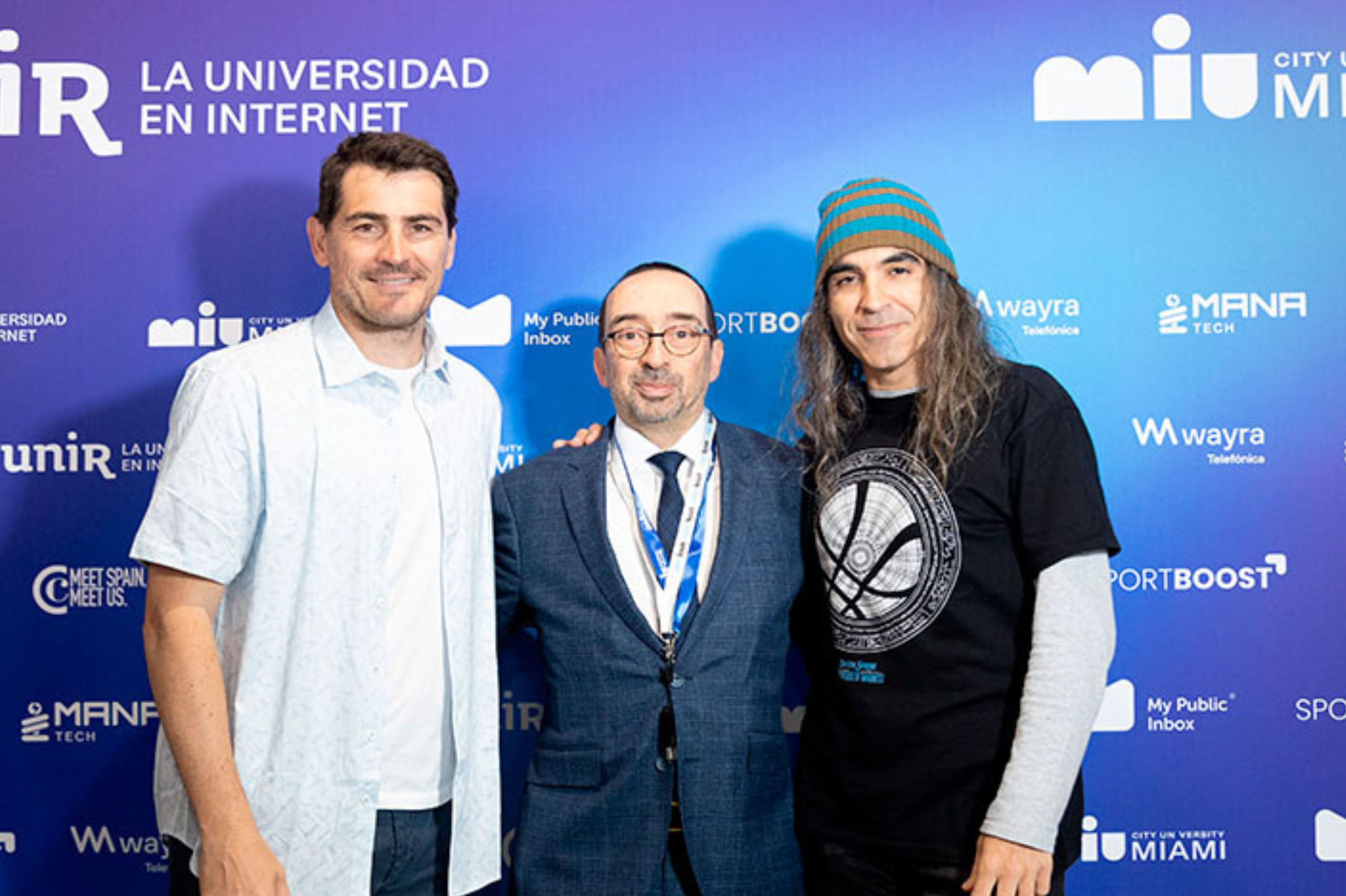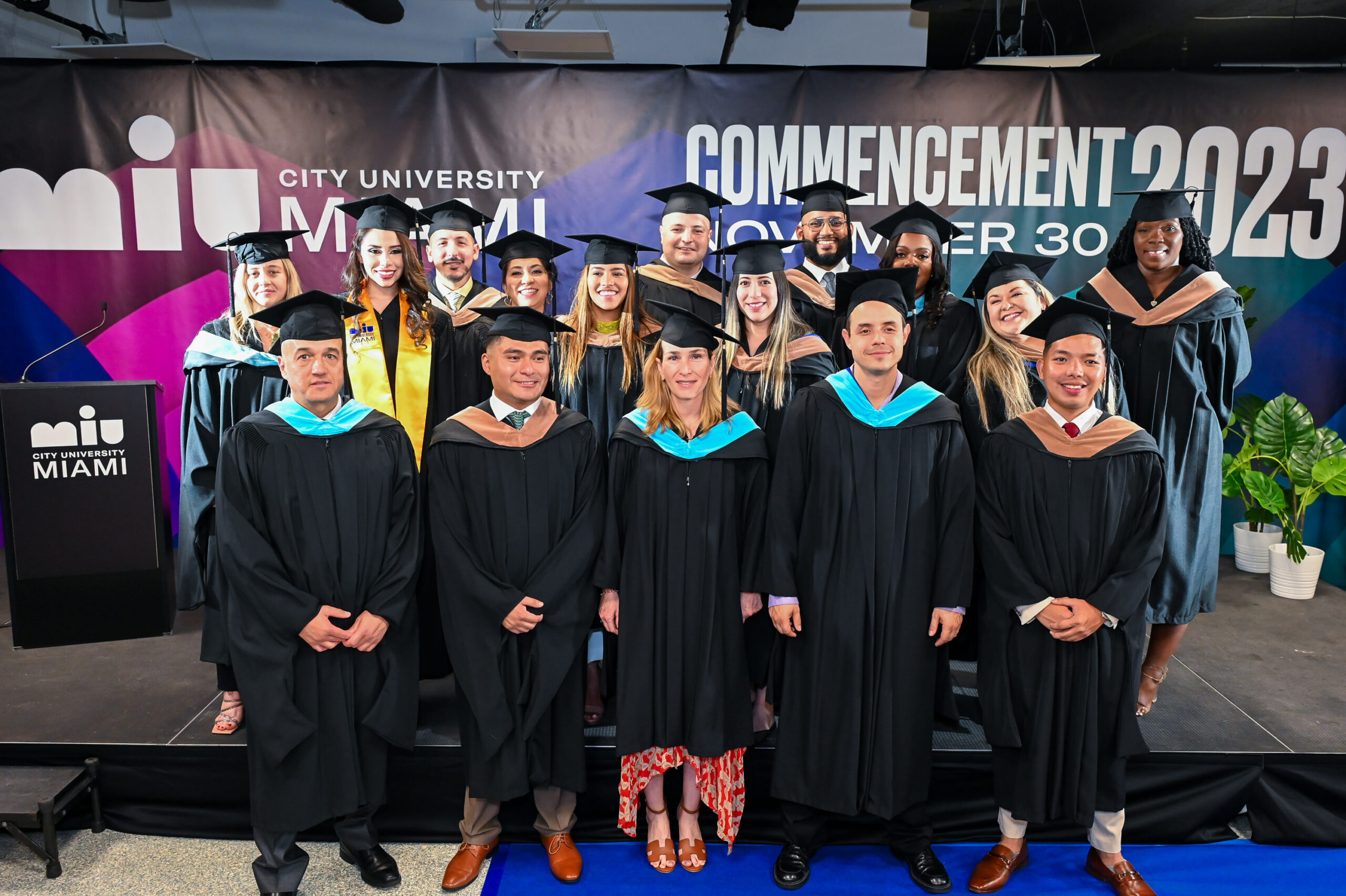
UNIR Presents the First Declaration for the Ethical Use of AI in Higher Education, at UNESCO
UNIR Presents the First Declaration for the Ethical Use of AI in Higher Education, at UNESCO
- Prof. Daniel Burgos, Vice-rector for International Research at the Universidad Internacional de La Rioja (UNIR, Spain), and President of MIU City University Miami (MIU, USA), presented the document at a high-profile international event attended by 3,000 leading experts on eLearning and educational technology & innovation.
- The declaration, which is the first of its kind implemented by an online university in any language, and the first one in Spanish, represents a significant step forward to establish a common framework in higher education. The declaration concentrates on the use, application, and development of AI-based solutions, particularly Generative AI.
Prof. Daniel Burgos, Vice-rector for International Research at the Universidad Internacional de La Rioja (UNIR, Spain), and President of MIU City University Miami (MIU, USA) presented the Declaration for the Ethical Use of Artificial Intelligence in Higher Education this Tuesday at UNESCO headquarters in Paris, France. The Declaration, which is the first of its kind to be implemented by an online university in any language, and the first one in Spanish, was introduced during the second edition of Digital Learning Week (DLW). Prof. Burgos presented the declaration as part of the panel discussion “AI in Higher Education and Research: Competencies and Ethical Principles,” which included other global leaders in the application of Artificial Intelligence to higher education and research. The annual UNESCO event, which attracts more than 3,000 leading international professionals from around the world in the fields of eLearning and educational technology & innovation, is organized from last Monday to Thursday.
The main goal of the document is to establish a reference framework to guide all members of the community at the Proeduca Education Group, including UNIR and MIU, in the use, application, and development of AI-based solutions, with a particular focus on Generative AI. This includes faculty, students, administrative staff, governing boards, and researchers.
In addition, the Declaration means a significant step toward to establish a necessary common baseñome fpr dialogue amongst Higher Education institutions, worldwide.
To date, just a dozen universities globally have implemented any form of regulation in this area.

A Declaration based on 10 Core Principles
Prof. Burgos explained the 10 pillars of the Declaration: “Humanity has been undergoing an exciting and relentless digital transformation over the past few decades. AI is now an integral part of our digital lives, and like all innovations borne from human progress, it has both positive aspects (primarily the improved organization of unstructured information) and negative ones (such as the introduction of biases and potential privacy intrusions). Additionally, AI can democratize and expand access to information, knowledge, and education across all economic and cultural sectors,” states the introduction to the declaration.
The UNIR Declaration for the Ethical Use of AI in Higher Education is based on 10 principles: Social Contribution, Equity, Training, Human supervision, Ethics, Confidentiality, Transparency, Sustainability, Knowledge, and Traceability.
“The Declaration is part of a broader policy framework that the Proeduca Education Group implements across all its universities. As a stand-alone document, it has limited value: however, the actual contribution comes from the integration with other policies, in a structured strategy, such as the Open Education Policy—first published in 2017, a pioneering document in its field in Spanish and in online education—and Research,” stated Prof. Burgos, editor of the Declaration and UNESCO Chair on eLearning.
He further stressed that “while we discuss the ethical use of AI, I believe there is an excessive focus on the product, the tool, rather than the user. In essence, what is ethical is the person, not the tool, which is merely another gadget whose real and practical uses we have yet to fully understand.”
Further, the significance of this presentation in a relevant and impactful international forum as the Digital Learning Week 2024 highlights the official launch of the Declaration. The event onlyaccepts between 15% and 20% of the hundreds of proposals submitted by educational institutions and professionals worldwide, and it becomes UNESCO’s key annual event in education. Prof. Burgos also comments, “This week is a landmark for a vital connection and communication point amongst the most significant breakthroughs in the sector. In the case of the Declaration, it can work as a starting point for other universities or educational institutions at any level, should they want to use it, to adapt the text to their own context and needs, as it has been published under a Creative Commons license.”

A Global Summit Featuring Prestigious Leaders and Pioneers in Digital Education
Digital Learning Week is UNESCO’s flagship annual event focused on digital learning and the transformation of education. Since last year, and as a continuation of the Mobile Learning Week, which was organized for over a decade, it has convened global leaders, policymakers, researchers, and digital education practitioners from various organizations, including UN agencies, governments, NGOs, and the private sector, to guide the integration of technology in education.
During the event, the President of MIU City University Miami also co-organized the presentation of the UNITWIN Chair network in Open Education, where UNIR is a founding partner. This represents the first network on this topic within UNESCO.
Guide on the Use of AI in Research Tasks
Additionally, Prof. Burgos presented the “Proeduca Guide on the Responsible Use of Generative AI in Research Tasks” within the forum. This document provides guidelines for the responsible use of Generative Artificial Intelligence (AI) tools in research activities developed or implemented by all universities within the Proeduca Education Group.
“The purpose of the Guide is to establish a clear protocol for common research activities, such as the authoring of scientific articles, or media production”, he concluded.

See more articles related to Blog

Created on: 25/02/2025
MIU City University Miami and CAMACOL Sign an Agreement to Promote Education and Business Development
Miami, January 16, 2025 MIU City University Miami and The Latin Chamber of Commerce of the United States (CAMACOL) have […]
Blog

Created on: 18/03/2025
UNIR Innovation Day Miami: Chema Alonso and Iker Casillas Lead the Charge for Cibersecurity and AI Education
Chema Alonso and Iker Casillas advocate for quality education to tackle the challenges of Cybersecurity and AI at UNIR Innovation […]
Blog

Created on: 18/03/2025
Commencement MIU City University Miami 2023
Hundreds of MIU students celebrated the culmination of their university studies in an emotional commencement ceremony. A total of 358 […]
Blog